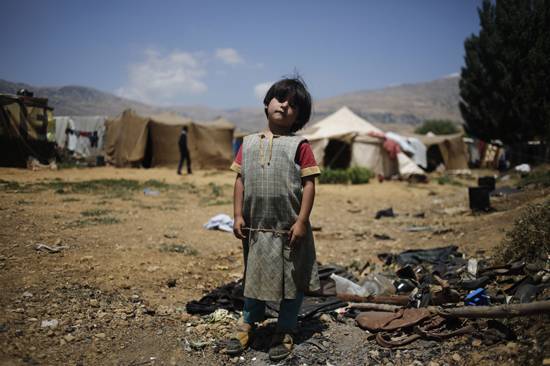Most of us have, this week, seen that devastating photograph of three year old Aylan Kurdi, the Syrian toddler in the red t-shirt, whose corpse washed up onto a beach in Turkey. His five year old brother, Galip, and his mother Rehan drowned too, leaving their shattered father behind to bury his family. In spite of the dozens of bodies of mostly children being found on their shores, Turkey has reportedly taken in 1.8 million Syrian refugees. The other countries surrounding Syria include Lebanon, which has allowed 1.2 million Syrians across their border, Iraq with almost a quarter of a million, and Jordan with a little over half a million refugees. There’s also Saudi Arabia, Kuwait, Bahrain and Qatar, who have taken in none. Zero. Not a single Syrian, not for love or money, not for the Muslim brotherhood or just a straightforward sense of humanity or pity. Germany has taken in thousands and all over Europe countries are opening their borders and their citizens are coming together to offer money, housing, food, clothes and volunteer work to the scores of Syrians who have, after four years of relentless bombing and terror in their country, have finally been forced out of their homes.
Pakistan is no stranger to the refugee either, and because of the very long and difficult to control nature of the Durand Line, has been home to millions of Afghan refugees since the eighties. I’d also like to think it’s because we know what it’s like to be a mohajir. Partition and love of country turned many a well-settled family in India to impoverished refugees in Pakistan, and while the fledgling government tried their best to compensate them, nothing can really take the place of the home you were born in or the businesses that had been in your family for generations. The journey across the new border was dangerous and fraught with horror, and still thousands of people made that exodus in search of a better life—the reason why all refugees exist.
It’s the reason, along with some politics, why our Prophet and his followers left Makkah and made the hijrat to Madina. That flight was monumental in Islamic history, and the Islamic calendar begins from that point of exodus. Mohammad, PBUH, never went back to the city where he was born and where his entire family belonged. And Madina, from all accounts, welcomed him and his people with open arms. We know about the legendary Ansar, literally meaning ‘friend’ or ‘well-wisher’, who adopted a refugee family each and treated them like their own. The Ansar shared their lives with these strangers, opened their homes and businesses to them and looked after them until they were able to get settled and back on their feet. This is history, not fable. The Ansar of Madina were real people like you and me, who trusted a man they didn’t know personally and his band of followers (who they didn’t know at all), and gave them a home and a chance at a new life, free from the daily persecution of the Quraysh. That is immense. That is an enormous outpour of generosity, a debt that can never be repaid. The Ansar saved the Madinites’ lives, and it is because of them that the cause of Islam was able to move forward.
And so, how truly sad it makes me that today the keeper of those cities, the apparent seat of Islam, Saudi Arabia, hasn’t thought it relevant or humane to accept a single Syrian seeking asylum. That the country where our Prophet (PBUH) was born and which was the home of people like the Ansar should be so grievously lacking in the spirit of kindness and charity that Islam is meant to embody. It feels personal, because in this Islamophobic world of today one feels like grabbing every opportunity one has to show the world that Islam is not ISIS, that Muslims are not Osama. And there you have these smug, rich-as-Croesus Middle Eastern Muslim countries, with their ostensible Islamic identities, shariah and all, being the worst kind of Muslim—no, worst kind of person, in fact: intolerant, dismissive and downright cruel. Apparently a Kuwaiti minister said on television that the Syrians were psychologically disturbed and must not be allowed into Kuwait under any circumstance. Well, of course they will be traumatised after four years of war. We still blame the Afghan refugees for an uptick in our drug and automatic weapon culture, along with the entire litany of our childhood afternoons—don’t go outside while the grown-ups nap otherwise a Pathan will kidnap you. That’s turning the refugee into a villain, but at least the refugee was in a city that wasn’t being bombed. The IDPs presently crammed into tiny rooms in all our major cities, fleeing the drone attacks in the north, have their own problems, but at least staying alive isn’t one of them.
It of course doesn’t say much for the state of the world when ‘staying alive’ is one’s top priority, whether than means huddling inside a dark, airless container for days or floating in the sea, clutching your baby to your chest and trying to keep you both above the water. One realises that the real solution to the refugee problem is stopping the war, but we live in a world where little is in our control. So the least we can do is donate to international aid organisations that are looking after the Syrians, and applaud the kindness of the people who are physically out there, helping. And maybe we can start that Ansar spirit going and look to our own refugees, who are living in squalid and desperate situations right under our noses. After all, charity begins at home.






